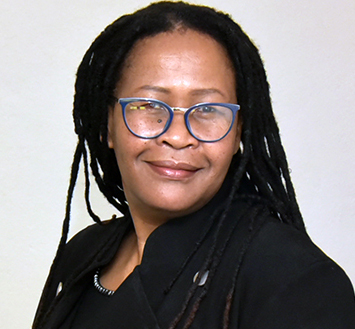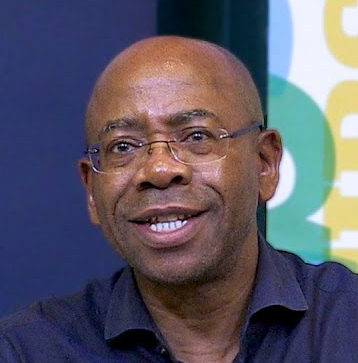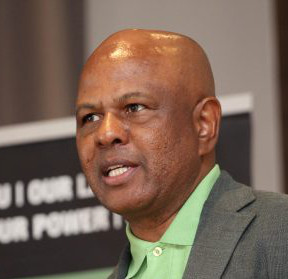Professor Onkgopotse JJ Tabane
A Frank Dialogue among leaders to identify key problems and how to implement sustainable solutions
With the cost of living driving more people below the poverty line, a question on many of our minds is: what is the future of South Africa’s economy? The aim of the Frank Dialogue webinar, held in partnership with Unisa and the Mail & Guardian, was to identify the problems facing the country’s economy and to find solutions to overcome them. All the participants pointed out that the key challenges were youth unemployment and the lack of leadership. Joseph Mathunjwa, President of the Association of Mineworkers and Construction Union (AMCU), summed up the leadership crisis succinctly: “Leaders are selected before they are elected … and then they are controlled by those who selected them.”
Setting the context for the debate, Professor Pumela Msweli, Executive Dean of Unisa’s Graduate School of Business Leadership, asked: “What kind of interventions do we need to put in place in this time when business is completely extraordinary? Where our world has been reset and has launched itself into a different context? Where a lot of industries have almost been decimated, and growth, particularly in South Africa, has been affected by the geo-political wars and the pandemic?”
 Professor Pumela Msweli
Professor Pumela Msweli
Xhanti Payi, Economist, Author and Advisor to various institutions, said that the core driver of any economy is its people and that the unemployment rate of young people in South Africa stands at 74.9%, which means that almost three-quarters of the country’s current and future labour force is lying idle. Instead of participating in the economy and pursuing self-growth, too many young people remain excluded. Conditions are not conducive for working, Payi explained, citing unreliable energy as a major obstacle to internet connectivity, networking and creating job opportunities. He said that South Africa’s economy has not grown to absorb the million jobs lost during Covid-19, despite the potential for enterprise, for example, in renewable energy and agriculture.
The country is facing multiple crises, said Professor Bonang Mohale, President of Business Unity South Africa, adding that South Africa was “very far behind”. He cited the rolling blackouts that have occurred since 2007 — more than 14 years of load-shedding, which has not brought us any closer to solving the energy crisis. He said the new world economy is unpredictable and that the supply chain has been deconstructed. There is a shortage of labour, while the number of unemployed adults, including graduates, keeps growing. There is an inflation crisis, a looming fifth wave of public debt crisis, ongoing global commodity price hikes and reduced global income. “The cost of living is in a crisis and there are now increased poverty levels. There is an urgent need for fiscal coordination by the global markets in the world, including South Africa.”
 Professor Bonang Mohale
Professor Bonang Mohale
Professor Onkgopotse JJ Tabane, Anchor of Power to Truth on eNCA and Author of Let’s Talk Frankly, who hosted the debate, asked whether there was reluctance in business to invest. Mohale replied: “When there is regulatory certainty and policy stability, business will invest. It doesn’t care about your politics … in South Africa our single biggest systemic and systematic risk is youth unemployment.”
Mathunjwa decried South Africa’s inability to benefit from its vast mineral resources while unemployment rates were increasing. “If we don’t address the issue of this curriculum of South Africa where our education does not have any relation with the minerals that we mine, we will always be the price taker … We don’t have a say in our pricing [of minerals]. The trade agreements that this country has entered into has made us poor. It makes people not have jobs, it makes people lazy … we export raw materials without beneficiation. South Africa’s high unemployment is self-inflicted and the reason is trade agreements, which have made us a consuming nation. There is no innovation and entrepreneurship in this country.”
Msweli concurred, and said that the war in Ukraine is also an opportunity because it exposes South Africa’s dependence on sunflowers and wheat — crops we should be growing and harvesting, and products that we should be manufacturing inside the country.
Mathunjwa said that the economic policies, electoral system and constitution needed to be revised. Tabane used land expropriation without compensation as an example of having “good policies but poor implementation”. State capture commissions indicate that billions of rands have been stolen, yet nothing has been done and nobody has been jailed, he said.
Mohale agreed, saying “what we need more than anything else is leadership”. There hasn’t been true land reform because of bribery and corruption in the department of land affairs, he said. He described how the price of a farm can escalate from being worth R1-million to being sold to the state for R20-million — with R10-million going to the farmer and the other R10-million into someone’s pocket — and the land still doesn’t belong to the people who work or live on it.
 Xhanti Payi
Xhanti Payi
Picking up on the earlier theme of being a consuming nation, Mohale said there used to be industrial and economic activity in townships but now malls have stopped that. Instead of small businesses baking bread in Soweto, bread is delivered at 3am every morning. He called for creative thinking to break the cycle. “Inequality is widening, black graduates are wandering the streets hopelessly, public health continues to fail the poor and vulnerable, while these hospitals named after struggle heroes don’t even have water or basic services,” Mohale said.
Tabane asked Payi where the meeting point is between business and labour; how can we build bridges? Payi used housing as an example where business and bank’s investments stand to make money, but due to corruption there now are elements of racism and distrust that need to be addressed. Houses occupy land, so it’s not just about the land, but how the land is used. He said South Africans do not have the necessary skills, materials or support to till the land and grow produce. “The issue is about answering what can we do where we are? We need to wake people up to these kinds of discussions.” There is a culture of “waiting for government” which in effect is “laying to waste the potential of young people”.
Tabane noted that the common denominator from the panel was the crisis of leadership. He asked Msweli what the academic sector can do to “build a cohort of leadership that can tackle these issues, otherwise in a decade from now we’ll have even worse leaders”.
 Joseph Mathunjwa
Joseph Mathunjwa
Msweli emphasised that Africa has an abundance of hard and soft commodities. She said even if we change the constitution and give people more land, will it change anything? The economic development equation is that you need land, technology and capabilities. “But we cannot underestimate that we need skills. What capabilities are we giving the 74.9% unemployed youth to change our trajectory?” she asked.
“We need to have a strong enough education system that will build capabilities with values that will build the economy. Firstly, we need to ground our education system in the right philosophy of ubuntu, that part of us that makes us human, from the community and family level and through street committees. Secondly, we need to align our industrial policies with our education system to build capability,” Msweli said.
Tabane proposed that the panellists, under the guidance of Mohale, draft a concept paper from the Frank Dialogue and table it so that the discussion could be taken to a national level.
Mohale concluded the discussion by identifying five priorities to invest in:
- Stabilising the energy supply
- Accelerating select water projects
- Unlocking select logistics industry bottlenecks
- Unlocking the R2.2-trillion infrastructure pipeline
- Improving law and order, because without safety and security, what are we?